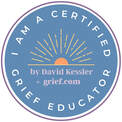|
“Many of the truths we cling to depend greatly on our point of view.” --Obi-Wan Kenobi
Merriam Webster defines communication as, “a process by which information is exchanged between individuals through a common system of symbols, signs, or behavior.” It sounds so simple, yet miscommunication is one of the biggest issues with which many people struggle. When we communicate it is not just the words that are spoken. There is a whole other level of communication that is shared with the tone, inflection and body language of each person. Then there are our own thoughts and opinions about the person, the situation and our beliefs about ourselves. When we talk with another person, it is filtered through all of our own ‘stuff.’ When a co-worker I trust and respect says that I did a ‘great job’ on a project, I may appreciate the compliment, but if a co-worker I don’t trust says the exact same thing my mind may start to imagine all kinds of scenarios in which they are against me in some way. My ‘stuff’ influences how I react to the same words. Our minds are wonderful at deduction. Many times, it serves us well. We get a few clues and we are able to piece together meaning and fill in the blanks so the story makes sense. Unfortunately, we also fill in the blanks with incorrect information from time to time. We assume we know the intent of the other person and what they meant by what was said. When I envision us as people, I see our ego as being a filter that surrounds us. As we get information it passes through our ego. When our filter is clear, we are able to objectively look at the facts of a situation. The more clogged the filter, the more we include our own judgements and assumptions. Miscommunication happens when we fail to explore how the debris on our ego filter may have distorted our view of the situation. Take a step back the next time you find yourself in a situation where miscommunication is occurring. Ask yourself what the facts of the situation are and begin to reflect on any debris that may be distorting the facts. The more clogged the filter, the harder this will be to do, so start with little issues first. The more we recognize our own debris, the more we are able to remove it and begin to clear our ego filters. That will improve communication.
0 Comments
“Communication is to relationships what breath is to life.” –Virginia Satir
As I have studied various counseling theories, there is one that stands out as my favorite. That is the work of Virginia Satir, which is profound in its simplicity. When she looked at families, she knew that each member of the family was longing for love and acceptance from each other. Her goal was to validate each member and to help them see where the breakdown in communication was occurring. One of the ways she did this was by identifying the roles each family member played and how it affected the way they saw themselves and the world. She identified three necessary parts to healthy interaction; the self, others and context. When these three positions are balanced, there is congruent communication. When one or more of these three positions are denied, distorted or eliminated, defensiveness and stress occur in the communication. When someone sacrifices themselves in a situation to put the needs of others and the context of the situation first, they became what she called a placater. Placaters will put their own needs aside and will often say ‘yes’ when they really want to say ‘no.’ They will do whatever is necessary for others to be happy and will sacrifice as much of themselves as needed to please others, often out of fear of being rejected. A blamer, on the other hand, has no problem sacrificing others in order to maintain their sense of self and the context. They put the responsibility completely on other people when something goes wrong. They will often say things like, “What’s the matter with you…” or “I can’t believe you…” The super reasonable person is like a computer. They sacrifice the self and others to only focus on the context of the situation. They tend to take a detached stance and will focus on principle and what is ‘right’ instead of on people’s feelings or emotions. They will often use the word ‘it’ to communicate, such as, “It is important to…” or “It doesn’t matter.” The irrelevant communication stance doesn’t address the self, others nor the context. This is someone who can’t tolerate discomfort in a conversation and will immediately change the subject and talk about something else. They seem to hope that their distractions will avoid the hurt, pain or stress. While we all take on aspects of these styles from time to time, by objectively looking at these communication stances, it is easy to see how defensiveness arises and clear communication breaks down. When the self, others and the context are all taken into account, issues can be addressed head on. There is compassion for the other and respect for the self to address the context of the situation. What roles have you been falling into and what would change if all three aspects were balanced in congruent communication? “All the mistakes I ever made were when I wanted to say ‘No’ and said ‘Yes.'” — Moss Hart
“But, if I say ‘no’ they won’t like me!” Julie recently told me. We discussed what makes it hard for her to say ‘no.’ She told me it is her responsibility to put everyone else’s needs before hers. I asked if she feels the need to please others before taking care of herself may have anything to do with the current addiction she is suffering from. She noted that she hadn’t thought about it before. The need to please is common, especially in females. While there are many reasons why clients have a hard time saying ‘no,’ one of the most common reasons I hear is that they believe friendship is based on doing things for other people. There is a belief that the friendship isn’t really about being with a person, but is more a way to get needs met. They look for people that can give them what they need and then do favors for them, expecting to get their own needs met. For people who don’t drive, they may befriend a person with a vehicle. They start doing favors and giving the person things so that they can get the ride when they need it. This ‘banking of favors’ does not usually end well. Often, when they have a need and expect the favor in return, it is met with rejection. Since they have based the friendship on balancing of needs, when they are let down by someone they end the friendship and go looking for someone else who will be able to meet their needs. This becomes a perpetual problem. Another reason is that they feel their needs are secondary to other people. They justify how their children’s or spouse’s needs are more important than theirs. Minimizing their own needs leads to resentment. When they do express a need and it is rejected there is a reinforcement that their needs are not important enough to be met. One of the things I discuss is how in a healthy family system, everyone’s needs are equal. There can be negotiation and compromise, but denial of anyone’s needs is never acceptable. When someone has sacrificed their needs for the family it is often difficult to start saying ‘no.’ One of the things I discuss is starting to set better boundaries with other people. Boundaries are not cutting people off, but are new agreements that can get made between two people. It is respecting the new agreement so that everyone’s needs are met. When I worked with Julie, one the things I had her work on was to set a goal to make at least one person mad each day. If she made more than one person mad in a day that was a bonus! I asked her to consciously choose whether she wanted to say ‘yes’ or ‘no.’ It took a lot of courage for her to start saying ‘no.’ She told me that after I gave her this challenge, she got a call from her brother asking her to babysit her niece. She told me she had other plans, but before would have rearranged her plans. She got up the courage to say ‘no,’ fully expecting him to be mad at her. She discussed how surprised she was that he just said, ‘okay.’ It was empowering for her to realize that he still liked her! Setting boundaries and choosing ‘yes’ or ‘no’ is a gift to yourself. Other people will respect you more when you negotiate agreements to get everyone’s needs met. Don’t be afraid to say ‘no.’ People will still like you! “The most important thing in communication is hearing what isn’t said.” –Peter Drucker
Last week I discussed blocks to communication. This week we will explore five ways to open the lines of communication.
“The single biggest problem in communication is the illusion that it has taken place.” –George Bernard Shaw
If you ask couples what they could improve in their relationship, the most common answer would probably be communication. Many of us seem to struggle from time to time with being able to express ourselves clearly and to understand our partners. When I work with couples, one of the analogies I often use is that of an iceberg. I explain that they can only see the very tip of their partner’s iceberg. Above the water is the behaviors and actions that they can see. Under the water is where the majority of the iceberg is hidden. These are the memories, thoughts and emotions that our partner holds. At the waterline is where communication lies. Communication is the bridge between what a person is experiencing internally and how they express it externally. When there is limited communication, partners are left to guess at what the other is feeling based on the behaviors and actions that are witnessed. Unfortunately, many of the assumptions that we make about our partner, based on what we see, are simply not accurate. What makes it so difficult for us to communicate effectively? These are the two most common reasons I have seen: The first is an assumption that one partner already knows how the other is feeling. In my work with couples, I often hear partners say that the other should know how they are feeling. While we clearly know how we are feeling, I think we often forget that others aren’t experiencing situations in the same way that we are. Just because a situation makes us angry or excited, I think we often expect everyone else to feel the same way, so we don’t bother to talk about it. Along with this is a tendency to express our emotions one time and then to expect the partner to know it. I often hear this when partners complain about not being told that they are appreciated or loved. The conversation sounds like, “Why don’t you ever tell me that you appreciate what I do?” Which gets responded to with, “I do, I told you that time when you…” The other reason is a fear of being vulnerable. When we express our thoughts, emotions, embarrassments and shames, there is a risk that our partner will reject or criticize us. Many of us have had experiences where we shared something personal and were vulnerable with another person, only to be betrayed by them. That experience often results in a hardening to protect ourselves from going through that experience again. The problem is, the brick wall we build so that we don’t get hurt also stops love from penetrating fully. The fear of sharing vulnerable emotions is met with frustration and anger which often adds bricks to the wall instead of knocking them down. It is frustrating for both partners when there is a breakdown in communication. Communication is critical in every healthy relationship. Next week I will discuss some ways to improve communication. “The course of true love never did run smooth.” –William Shakespeare
This week we will look at the last of Dr. John Gottman’s ‘Four Horsemen of the Apocalypse,’ stonewalling. Of the four horsemen, this is the most infuriating for most people to deal with. Stonewalling is when one of the partners simply shuts down and refuses to engage with their partner. For the partner trying to connect, the stonewalling reaction creates a sense of fear, anger or despair. It is as if they have lost their partner. Gottman has found that approximately 85% of the stonewallers in his research were males. One of the interesting things he found with stonewalling is that when he talked to the people who were doing the stonewalling, their intent was simply to not to make things worse. Many explained that they stayed quiet thinking that it would help the situation and their partner would calm down easier if they stopped responding. As humans, we are social creatures. We are wired for connection. In studies with infants, when a caregiver stops responding and simply stares at the baby, the baby becomes distressed. Our body physically responds to the distress and we go into reactionary mode. The antidote that Dr. Gottman recommends is to notify your partner that you need some time away and to then find something relaxing and enjoyable to do for at least 30 minutes. This self-soothing is critical to calming our central nervous system and reactivating our mental ability to think and reason. In one of Dr. Gottman’s studies he actually had couples get into an argument and when the partners were highly reactive he pretended that there was an issue with the equipment. He instructed the couples not to talk until they got the equipment fixed. They allowed the partners to get a drink or snack and read magazines during this time. When they resumed, the couples were able to focus on the problem and come to a solution quickly. He noted that time away, especially with stonewalling is critical for successful resolution of problems. If these four horsemen sound all too familiar in your relationship, it does not mean that all is lost. Becoming aware of the patterns and giving them a name is the first step to resolving them. Help each other notice when the horsemen are in play and soon they will visit less often. “When you show deep empathy toward others, their defensive energy goes down, and positive energy replaces it. That’s when you can get more creative in solving problems.” –Stephen Covey
Defensiveness is a normal human reaction. We all get defensive from time to time when we feel that we are under attack. While it is normal to feel defensive, in a relationship it often becomes an unhealthy pattern of behavior. Defensiveness is the third of John Gottman’s ‘Four Horsemen of the Apocalypse.’ Take the following exchange for example, “We’re always late! Why can’t you ever be on time for anything?” Which gets a reply of, “What do you mean I’m always late? You are the one who can never leave on time!” From this point the conversation goes downhill. I envision defensiveness as a shield that gets raised whenever we feel that our partner’s words are like daggers. We then load our own arsenal and begin firing back. In defensive mode, it is all about self-protection and in order to protect our self we need to blame our partner or make them wrong in some way. It becomes a war of words, in which there is no winner. So, how do you get out of the battle of defensiveness and put down the weapons? Dr. Gottman’s antidote for defensiveness is responsibility. Taking responsibility disarms our partner. In the previous example of being late, if the partner had responded with taking responsibility it may have sounded like, “You are right, I was not paying attention to the time and I realize that I need to be more aware of what needs to be done before we leave next time.” It sounds easy to take responsibility, but it is not natural. Often, we don’t feel that it is our fault. We truly believe that the problem lies solely in our partner. It takes a good deal of self-awareness in order to take responsibility. One of my favorite scriptures from the Bible is Matthew 7:3 which asks, “Why do you look at the speck of sawdust in your brother’s eye and pay no attention to the plank in your own eye?” It is much easier for us to see the faults of others then it is to take responsibility for our own shortcomings. For us to grow, we need to become curious about ourselves. When our partner fires a complaint at us, becoming curious instead of defensive can stop the battle. By taking a moment to reflect on the partner’s complaint and exploring it with genuine curiosity, we are often able to find something that we can take true responsibility for. This is completely different from the martyr saying, ‘Just blame me, it is always my fault.’ Martyrdom is just another form of defensiveness. Taking responsibility is truly listening to what your partner is saying and becoming curious about what can be done to resolve the problem. How different would your relationship feel with both partners taking responsibility? Next week I will explore the last of the four horsemen, Stonewalling. “Teach not thy lip such scorn, for it was made For kissing, lady, not for such contempt.” –William Shakespeare
The second of the ‘Four Horsemen of the Apocalypse’ is contempt. This is not just criticizing your partner, it is tearing them down. Contempt is name calling and blatant disrespect. It is hitting below the belt, pushing their buttons and bringing up the past. It is also mocking your partner and displaying an air of superiority in the relationship. When couples are in contempt there is a toxic air between them. Dr. John Gottman has noted a correlation between couples who are in contempt and the number of infectious diseases the partner suffers from. As he studied couples he has found that contempt actually erodes the immune system of an individual. Contempt physically and mentally breaks down a partner. It is the most destructive of the four of the horsemen and is the greatest predictor of divorce. A partner who engages in contempt sees the world through the lens of negativity. Almost anything can become the target of contempt. So how do you deal with contempt? Appreciation is the antidote. It is through respect and appreciation for your partner that healing can begin to occur. This sounds easy, but it takes conscious effort to remove the lens of negativity and begin to see things that your partner is doing right. One of the things that Dr. Gottman recommends when partners are stuck in contempt is to begin by talking about positive aspects of the relationship. It can be discussing positive or funny moments that have stood out during the marriage or how you were able to work through a difficult time together. It can also be reconnecting through activities that you used to enjoy. What were the activities that you both enjoyed in the early days of the relationship? Was it playing a board game together, going for a hike, bowling? When couples begin to talk positively about their partner, and with their partner, the pattern of negativity is interrupted. As I work with couples, I often talk about how couples need to get into a groove, but not a rut. It is like the groove in a record, but often couples get caught in a skip. They repeat the same behavior over and over. All too frequently, it is destructive contempt that is skipping. It takes work to recognize the negative pattern and courage for both partners to begin reconnecting through respect and appreciation. Are you ready to move the needle on the record to the next song? It is not easy, but it can save your marriage and your health if you are ready. Next week I will discuss the third ‘Horseman of the Apocalypse’ which is defensiveness. “Better than a thousand hollow words, is one word that brings peace.” –Buddha
All relationships have their moments. Two people cannot live together without having differences of opinion from time to time. When these differences of opinion arise, how they are handled can either escalate the situation or resolve it. Criticism is the first of the ‘Four Horsemen of the Apocalypse’ that were introduced last week. Criticism is basically attacking the partner’s character instead of addressing the situation. Judgment is an easy trap to fall into. We often assume that we know why our partner is or isn’t doing something and believe that we need to let them know about it. When we address an issue, the focus can either be on the behavior or the person. It sounds like semantics to talk about the behavior or the person doing the behavior, but there is a significant difference. When behavior is addressed, the person themselves are still okay and there is a behavior change that can happen. When the focus is on the person, it becomes a personal attack on their character, which implies that they are not okay. This is criticism. There are often a lot of ‘always’ and ‘never’ words used in criticism. It sounds like ‘You always leave your clothes on the floor!’ ‘Why don’t you ever say anything nice to me?’ or ‘You never do anything right!’ Criticism is saying that the person is somehow flawed and there is something wrong with them. So, how can a partner’s behavior be addressed respectfully without attacking the person? It is important to start out with the facts of the situation, without adding emotion. ‘When this happened…’ Then state how it makes you feel. This is where finding an appropriate emotion word is important. There are hundreds of emotions that we can feel, but we usually limit our vocabulary to only three- happy, sad and angry. Try to tune in and find which emotion or mixture of emotions you feel. Did the behavior make you; upset, envious, frustrated, anxious, unheard, hurt, jealous, vulnerable, scared, etc… The third step is to ask for what you would like. ‘What I would like is….’ The final step is to ask if your partner is willing to honor that request. If they are not, negotiate to find something that meets both of your needs. For example, what would it be like to hear, “When I find your socks laying all over the house, I feel unappreciated. What I would like is for you to put your socks in the laundry room. Would you be able to do that?” This statement addresses the behavior and is not a personal attack. This sounds very different from, ‘You always leave your socks laying around the house! Why can’t you ever put them in the laundry room?’ Patterns of behavior develop throughout a relationship. If criticism is a frequent pattern of communication in your relationship, the first step is to recognize it. Try experimenting with addressing the behavior using these four steps and see if the tone shifts. Next week I will discuss the second ‘Horseman of the Apocalypse’ which is contempt. “Marriage is an extremely difficult relationship.”–Lee Radziwill
Being in a relationship is difficult work. Whenever two completely unique individuals choose to spend a significant amount of time together, conflict is bound to occur. We all see the world through our own lens and it is often difficult to remember that others don’t see it the way we do. As I work with couples, one of the things I listen for is what is called the ‘Four Horseman of the Apocalypse.’ Dr. John Gottman has done a significant amount of research with couples and he has been able to identify four behaviors that accurately predict divorce. When couples are entrenched in these four behaviors a significant amount of time, there is an 80-90% chance that the couple will get a divorce. While it is normal for healthy couples to display these behaviors from time to time, if these behaviors are becoming routine ways of communicating, trouble is looming.
—This post is based on the book Why Marriages Succeed or Fail by John Gottman, Ph.D. |
Archives
April 2020
Categories
All
|
 RSS Feed
RSS Feed




